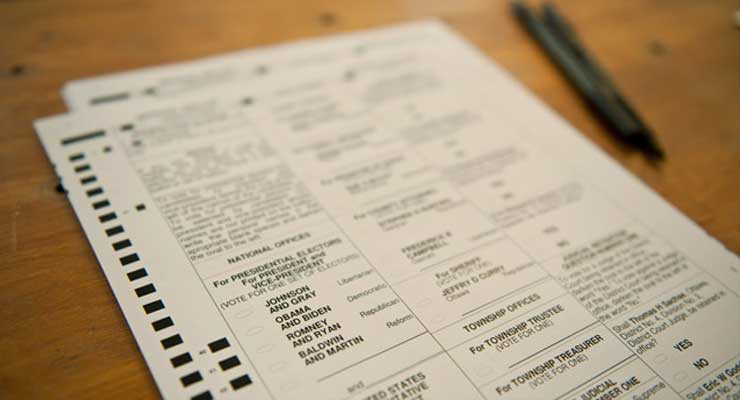
Errors on signature requirements come with high cost and resulted in this Pennsylvania ballot access case
From the Ballot Access News article, “Third Circuit Sets Oral Argument Date for Pennsylvania Ballot Access Case” by election expert Richard Winger:
The Third Circuit will hear Constitution Party of Pennsylvania v Cortes on Wednesday, April 13, in Philadelphia. The U.S. District Court in this case had invalidated Pennsylvania’s system of putting petitioning groups at risk of paying as much as $110,000 in court costs if they file a petition which is found to be invalid. Pennsylvania then appealed that decision. It would be valuable for minor party activists to attend this court hearing. The location is the federal courthouse in Philadelphia at 6th and Market Streets. The courtroom is on the 19th floor. The hearing is at 9 a.m.
The judges will be Thomas Ambro, a Clinton appointee; Cheryl Ann Krause, an Obama appointee; and D. Brooks Smith, a Bush Jr. appointee. Judge Smith seemed sympathetic to minor parties in another ballot access case in Pennsylvania in 2006, Rogers v Cortes, 460 F 3d 455. That case upheld the number of signatures needed for minor parties to get on the statewide ballot in 2006, and the vote as 3-0. But at least Judge Smith added, in footnote 8, that it was possible that Pennsylvania’s law requiring a party to have 15% of the registration in order to be on the ballot automatically might be unconstitutional. But, as he said, in the Rogers case the parties weren’t challenging that law. The footnote is somewhat unusual because Judge Smith didn’t write the opinion; the judge who did write the opinion said in footnote 8 that Judge Smith wanted that point to be made.
Some more information from Ballotpedia:
Like party candidates participating in the primary, independent, minor political party and political body candidates for state office (including the Pennsylvania General Assembly) must submit Candidate Affidavits and Statements of Financial Interest to the Pennsylvania Secretary of State. Candidates must also pay the same filing fees as primary candidates. Independent, minor party and political body candidates must also file nomination papers (not to be confused with the nomination petitions party candidates participating in the primary must complete). Candidates filing nomination papers must obtain signatures from electors of the district equal to at least 2 percent of the largest entire vote cast for an elected candidate in the last election within the district.
The organization Pennsylvania Ballot Access Coalition, a group of individuals and organizations devoted to building a better democracy in Pennsylvania, also has taken issue with other aspects of Pennsylvania laws on ballot access:
In 2012, the signature requirement for independent and minor party candidates was nearly 20,000. As compared to the major party candidates who need only 2,000 signatures. This is an appalling 10 times as many signatures! However, it is not as poor as has been the case in Pennsylvania. For example, in 2006, independent and minor party candidates were required to collect over 67,000 valid signatures simply to get on the state-wide ballot in Pennsylvania on Election Day. Legally, Democratic and Republican candidates require no signatures to get on the state-wide ballot, and even the 2,000 signatures required for the Primary Day ballot are ridiculously smaller than the virtually impossible hurdle of 67,000.
Pennsylvania law needs to be changed by the State Legislature to lower the outrageous signature requirements. State Senator Mike Folmer has introduced the Voters’ Choice Act which would bring about a fairer electoral process.
Leave a Reply